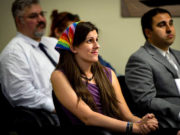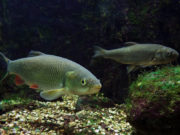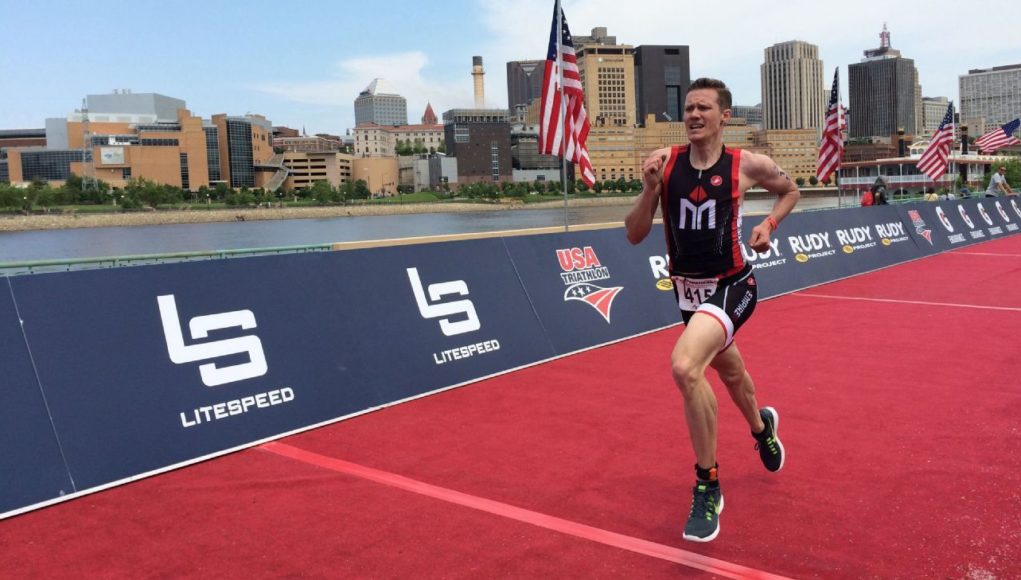 Sunday, June 7, 2015 duathlete, Chris Mosier made sports history. He finished seventh out of eighth in his age class, and 37th out of 117 athletes in the run-bike-run sprint duathlon. Chris’s history making moment came by him being the first transgender athlete to compete on a U.S. National team that matches his gender identity, and not the gender assigned him at birth.
Sunday, June 7, 2015 duathlete, Chris Mosier made sports history. He finished seventh out of eighth in his age class, and 37th out of 117 athletes in the run-bike-run sprint duathlon. Chris’s history making moment came by him being the first transgender athlete to compete on a U.S. National team that matches his gender identity, and not the gender assigned him at birth.
I didn’t see any trans men who were athletes
Chris was inducted into the National Gay and Lesbian Sports Hall of Fame in 2014. The Advocate selected Mosier as one of their 40 under 40 “emerging voices” in late 2014. “When I was considering transition, I didn’t see any trans men who were athletes,” he told The Advocate. “I didn’t know it was possible to continue to compete through transition…. My hope is that athletes who are questioning their gender identity can see me and hear my story and know they don’t have to give up their identity as an athlete to live authentically.”
 Chris has had a challenging road to get to where his is today. He began competing as a female as early as 2005 in the NYC Road Runners races. His love for endurance sports challenged him to run his first triathlon in 2009. He feared being barred from competitive sports, so he delayed transitioning, finally making the decision in 2010 to transition to male. I love the idea of being a role-model for young athletes,” he said. “I knew no trans athletes before coming out, and that was part of the reason I delayed my transition.
Chris has had a challenging road to get to where his is today. He began competing as a female as early as 2005 in the NYC Road Runners races. His love for endurance sports challenged him to run his first triathlon in 2009. He feared being barred from competitive sports, so he delayed transitioning, finally making the decision in 2010 to transition to male. I love the idea of being a role-model for young athletes,” he said. “I knew no trans athletes before coming out, and that was part of the reason I delayed my transition.
Chicago native, Mosier, 35, works in higher education at the college level and is happily married to his wife of 14 years, Zhen Heinemann, also a Chicago native, who he met after college. Mosier said his wife has been “absolutely incredible, so supportive of my transition, knowing that this was the right thing for me to do.”
…be true to yourself, and do whatever that means to you, [be it] identify as queer, or trans…
When not competing, Chris is a tireless trans advocate. He is the founder of TransAthlete.com, a site dedicated to educating and helping trans athletes. He is also the executive director of GO! Athletes, the largest support network for LGBT student athletes. “The idea of using my voice now to reach young athletes to let them know that, yes, you can play [sports] and still maintain your identity as an athlete and also still be true to yourself, and do whatever that means to you, [be it] identify as queer, or trans… it’s really important for me to do that.”
 Chicago trans sportswriter Christina Kahrl said Mosier is “the kind of role model our community deserves.”
Chicago trans sportswriter Christina Kahrl said Mosier is “the kind of role model our community deserves.”
Mosier will now represent the U.S. in the 2016 World Championship duathlon in Spain. Up until just recently, his eligibility to compete was in question. The International Triathlon Union, which oversees the World Duathlon Championships, informed Mosier that he must fill out a Request to Participate form before getting clearance to compete. That form is outlined by the International Olympic Committee(IOC). For a transgender athlete to complete, it required proof of these three steps of transition:
- They must have had gender reassignment surgery
- They must have legal recognition of their assigned gender
- They must have at least two years of hormone therapy
 The theory held that Male-Female transgender athletes would have an advantage if they still had their testicles. Medical evidence consistently controverted that reasoning. However the policy never changed. The non-specific verbiage included Female-Male trans-athletes as well, effectively, barring Chris from competing in any championship level sport. These guidelines were quietly amended earlier this year, negating the necessity to have gender reassignment surgery. Chris and all trans athletes need just comply with the later 2 requirements in order to compete in IOC regulated competitive sports.
The theory held that Male-Female transgender athletes would have an advantage if they still had their testicles. Medical evidence consistently controverted that reasoning. However the policy never changed. The non-specific verbiage included Female-Male trans-athletes as well, effectively, barring Chris from competing in any championship level sport. These guidelines were quietly amended earlier this year, negating the necessity to have gender reassignment surgery. Chris and all trans athletes need just comply with the later 2 requirements in order to compete in IOC regulated competitive sports.
His spot on the U.S. team in Spain qualifies him for the 2017 Long Distance Duathlon World Championships for team USA. To make the team, he has to place in the top 18 in the dualthon national championship to be held this May, 14th…in Cary, N.C.
I’m competing because I’m not going to let this interfere with my goal of making Team USA.
He faces his most challenging moral dilemma to date. Competing in a state that passed the discriminatory HB2 law. His love for competitive sport and desire to represent his country leaves him divided. “I’m competing because I’m not going to let this interfere with my goal of making Team USA,” he told Scott Gleeson of USAToday Sports. “I’m not as concerned in the race. But I’m going to be in the state where I don’t feel a lot of love. There’s the hotel, a restaurant. Anything can happen.”
I’m not an Olympian, but there will be [a trans] Olympian someday.
He’s also quick to point out that he won’t be an Olympian since duathlon isn’t part of the Games, but that is not an issue for him. “I will not be an Olympian, but I’m eligible to be. I could be, if I was good enough in any particular sport.”
Modesty notwithstanding, his advocacy and being a forerunner for trans athletes, sets Chris above and apart of many high profile trans athletes. Through his mentorship, one of the youth stars he trains will, one day, stand on the gold medal platform for team USA at an Olympic games.
mir, irini, peace, amn,
-jahn
jahn westbrook
Chris Mosier is an inspiration to me. Last year, I entered my name in the lottery for the NYC triathlon in July and was selected to compete. He and I share similar athletic preference, biking and running over swimming. My swimming experience, presently, is novice at best. Lessons and practice, and more lessons and more practice, will get me to the finish line. Knowing that he overcame and finished, gives me confidence. Once on land, I’m in my element. My training for this event is exhilarating and I cannot wait for that day. T-minus 79 days….

































